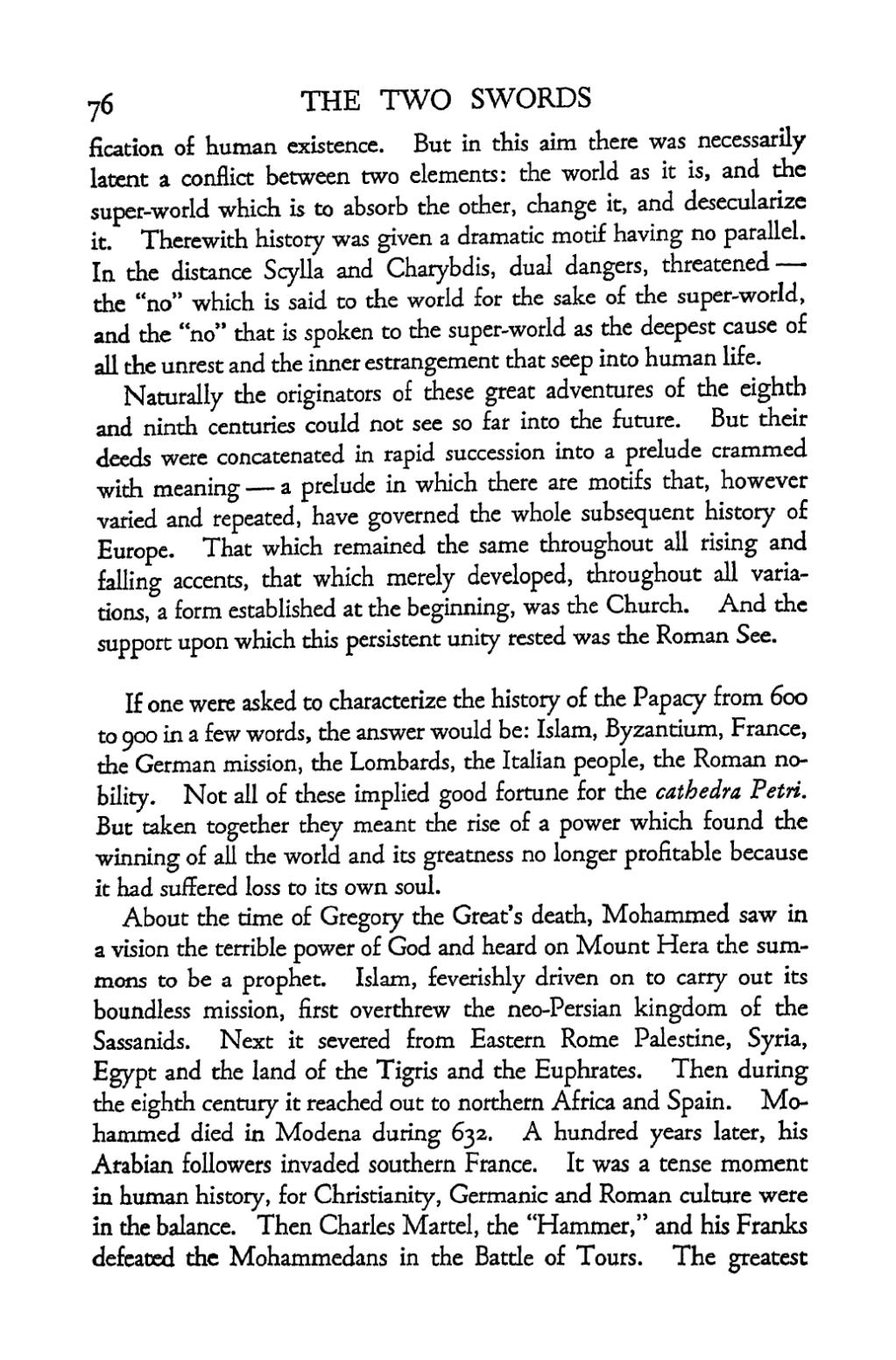6 THE TWO SWORDS
fication o human existence. But in this aim there was necessarily latent a conflict between two elements: the world as it is, and the super-world which is to absorb the other, change it, and desecularize it. Therewith history was given a dramatic motif having no parallel. In the distance Scylla and Charybdis, dual dangers, threatened the "no" which is said to the world for the sake of the super-world, and the "no" that is spoken to the super-world as the deepest cause of all the unrest and the inner estrangement that seep into human life.
Naturally the originators of these great adventures of the eighth and ninth centuries could not see so far into the future. But their deeds were concatenated in rapid succession into a prelude crammed with meaning a prelude in which there are motifs that, however varied and repeated, have governed the whole subsequent history of Europe. That which remained the same throughout all rising and falling accents, that which merely developed, throughout all varia- tions, a form established at the beginning, was the Church. And the support upon which this persistent unity rested was the Roman See.
If one were asked to characterize the history of the Papacy from 600 to 900 in a few words, the answer would be: Islam, Byzantium, France, the German mission, the Lombards, the Italian people, the Roman no- bility. Not all of these implied good fortune for the cathedra Petri. But taken together they meant the rise of a power which found the winning of all the world and its greatness no longer profitable because it had suffered loss to its own soul.
About the rime of Gregory the Great's death, Mohammed saw in a vision the terrible power of God and heard on Mount Hera the sum- mons to be a prophet. Islam, feverishly driven on to carry out its boundless mission, first overthrew the neo-Persian kingdom of the Sassanids. Next it severed from Eastern Rome Palestine, Syria, Egypt and the land of the Tigris and the Euphrates. Then during the eighth century it reached out to northern Africa and Spain. Mo- hammed died in Modena during 632. A hundred years later, his Arabian followers invaded southern France. It was a tense moment in human history, for Christianity, Germanic and Roman culture were in the balance. Then Charles Martel, the "Hammer," and his Franks defeated the Mohammedans in the Battle of Tours. The greatest
CHARLES
